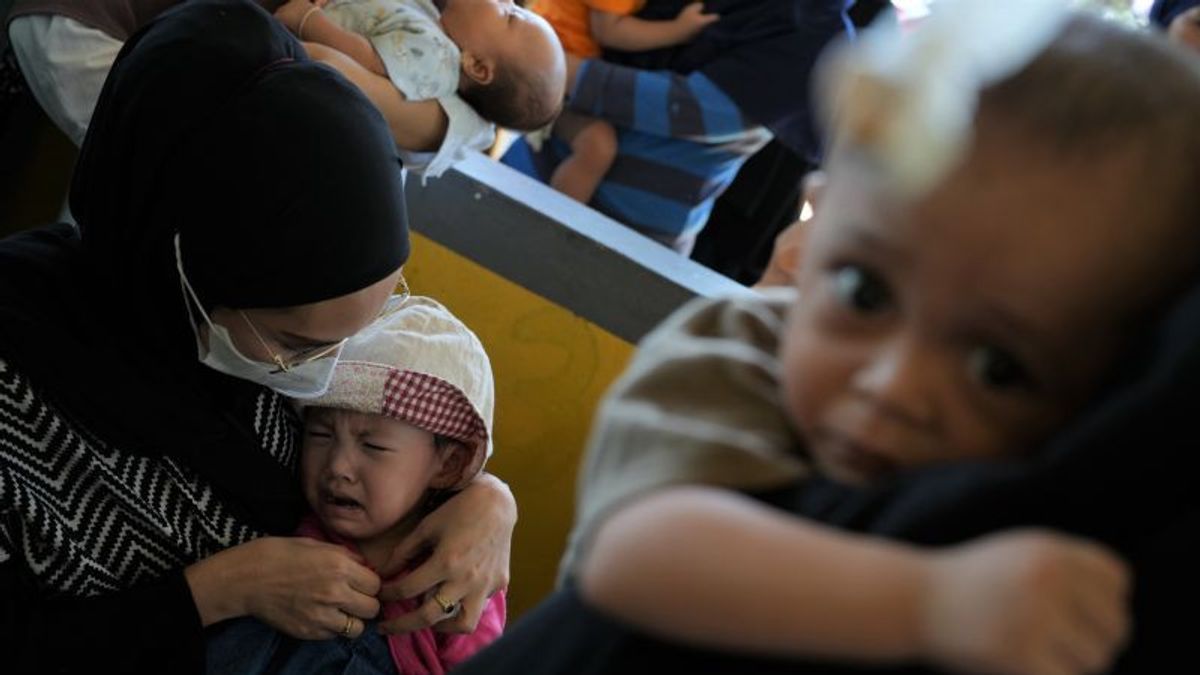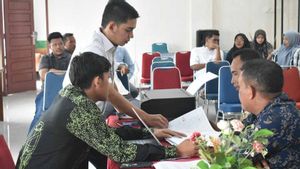JAKARTA - Subspecial child specialist respirology graduate of the Faculty of Medicine, University of Indonesia (FK-UI) Dr. Wahyuni Indawati, Sp.A(K), said early detection of pneumonia can be done by calculating the frequency of children's breath in one minute.
Pneumonia is pneumonia, and mainly, because there is an infection with microorganisms it can damage lung tissue. If there is lack of oxygen damage and death," Wahyuni said in a media meeting in Jakarta, Sunday. Early detection can be done by calculating the frequency of the child's breath in one minute. This method can be adjusted to the age of each child.
In children who are under two months old, the limit on the breath frequency is 60 times per minute. Then in children aged two to 12 months, the limit for the breath frequency is 50 times per minute, while in children aged one to five years the limit is 40 times per minute.
After counting his breath, Wahyuni asked his parents to confirm whether there was a chest wall tug.
Wahyuni explained that pneumonia is the highest infectious disease that causes death in children around the world. Based on UNICEF data in 2019, nearly 2,200 children under the age of five died from pneumonia every day around the world.
SEE ALSO:
Symptoms also seem at first glance like coughing and common fever so that it is not uncommon for parents to take it lightly and the disease can heal by itself. However, what distinguishes is if the child coughs with fast breathing or shortness of breath.
"Be careful with 'BBB' or not coughing normally, then try to see if you breathe shortness of breath or there is a pull of the chest wall. If there is, then caution can be a sign of pneumonia," said Wahyuni, quoted by Antara.
Parents must immediately take their children to the nearest health facility without having to wait for the child to become more congested or his body becomes blue.
A number of risk factors can make children exposed to pneumonia, namely babies under the age of two not being given exclusive breast milk, children not getting PCV immunization, experiencing malnutrition, premature birth or low birth weight (BBLR), exposed to pollution, exposed to cigarette smoke, living in dense housing and developing basic diseases such as HIV, heart disease or chronic disease.
The English, Chinese, Japanese, Arabic, and French versions are automatically generated by the AI. So there may still be inaccuracies in translating, please always see Indonesian as our main language. (system supported by DigitalSiber.id)
















